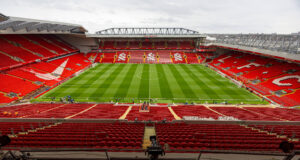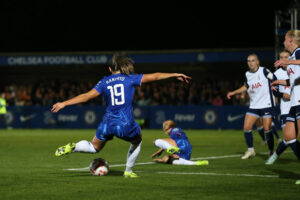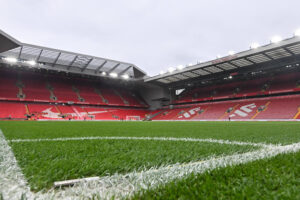The 2018 World Cup qualifiers are once again underway all across the globe. Fans of many countries will be dreaming of cheering their nation on in Russia next year. At present, there is one country who are usually an ever present, who are by no means certain of qualifying. Argentina were losing finalists in Brazil in 2014, and failure to qualify for next year’s tournament would not only be embarrassing, but it would also represent a major fall from grace.
This type of fall is actually more common than many would imagine. Many nations have dazzled at the World Cup over the years, only to come up short four years later. This is certainly true over the last fifty year. Teams who would reach the latter stages, maybe even winning the tournament would make an early exit or even fail to qualify the next time around.
1970: Portugal
Portugal were expected to do well in the 1966 World Cup, as they featured the majority of the Benfica side that had twice lifted the European Cup. Their star man was the great Eusébio, who finished as the tournament’s top scorer with nine goals. Topping a group that also included Brazil, Hungary and Bulgaria, they advanced to the quarter-finals against North Korea. Eusébio notched four goals in a 5-3 win, to set up a semi-final with host nation, and eventual winners, England. A 2-1 defeat set up a play-off against the U.S.S.R, which Portugal won to finish third.
Portugal’s failure to qualify for the 1970 World Cup in Mexico is rather surprising. Most of their side were still in their late twenties, Eusébio being one of them. Their qualifying group featured Romania, Greece and Switzerland, none of whom appeared to have a stronger squad than the Portuguese. After securing just one win from six games, Portugal finished bottom to spend the summer of 1970 looking back at what might have been.
1982: Holland
The Total Football displayed by Holland saw them reach two successive World Cup finals in the 1970’s. Despite the fact that Johan Cruyff had retired from the international football by the 1978 tournament, Holland were still a fantastic side. They reached the final after negotiating two group phases, the first of which included Scotland, Peru and Iran. The second one threw up much tougher prospects in West Germany, Italy and Austria. Holland won their group to progress to the final against the host nation Argentina, who won 3-1 after extra time.
By 1982 the side was well past its peak, and had finished fourth in a qualifying group that included Belgium, France, Ireland and Cyprus. Key players such as Johan Neeskens, Johnny Rep, Arie Haan and Ruud Krol retired soon afterwards.
1990: France
In the mid 1980’s, France were one of the best teams in world football. Led by captain Michel Platini, they won the 1984 European Championships, and were among the favourites for the 1986 World Cup. They finished third in Mexico, qualifying from a group which included U.S.S.R, Hungary and Canada. They then saw off Italy and Brazil in the knockout rounds, before West Germany beat them in the semi-final. This set up a third place playoff with Belgium, which France won.
Four years later the landscape had changed, with Platini having retired from football and now managing his country. It was still somewhat surprising, however, that a team containing Jean-Pierre Papin, Eric Cantona, Didier Deschamps and Laurent Blanc failed to qualify for Italia ’90. Yugoslavia topped their qualifying group, but France finished third, a point behind Scotland to ensure a quiet summer.
1994: England
Booby Robson’s team brought the nation together at Italia ’90, reaching the semi-finals. It’s fair to say they had had their fair share of luck to get that far. England scraped out of the group stage, scored a last minute winner against Belgium and were awarded two very debatable penalties against Cameroon. Their fortune ran out against West Germany, although the whole team played heroically. Nobody will forget the pain of losing on penalties, or the tears by Paul Gascoigne after picking up the booking that would have ruled him out of the final.
Under the late Graham Taylor, England failed to qualify for USA ’94. Everton manager Ronald Koeman became a hate figure for many English fans, after scoring the free kick that sealed their World Cup fate.
1998: Sweden
The 1994 World Cup was one of the most exciting in recent memory, with so many world class stars on show. There were many surprise packages, with Bulgaria, Romania and Nigeria among the most entertaining. Sweden were one of those teams, helped by the goals of Martin Dahlin. They narrowly lost the semi-final to eventual winners Brazil. In the play-off, they beat Bulgaria (who had eliminated holders Germany) 4-0 to secure third place.
Fast-forward four years and it was a completely different story. They were rather unfortunate in the sense that the 21 points they collected would have seen Sweden top five of the nine qualifying groups. Unfortunately for them, Scotland and Austria finished ahead of them to qualify for France ’98. The Swedes would not get a chance to see if they could have gone even further.
2002: France
The 1998 World Cup was the second time that France had hosted the biggest tournament in world football, having done so sixty years earlier. It was also the first time they had participated in the tournament in twelve years. This time they would go on to win the tournament, with a fantastic 3-0 destruction of the holders, Brazil, in the final.
Japan and South Korea co-hosted the 2002 World Cup, and if anything France were reckoned by most to have a stronger squad than four years earlier. Zinedine Zidane and Thierry Henry were two of the greatest players in the world, and both at the peak of their powers.
Their first match was against Senegal, who had never previously competed at the World Cup. Everyone expected a comfortable victory for the holders, but it didn’t turn out like that. When Papa Malick Diop struck the winning goal, the world was in shock. It was all downhill from there for France, as a goalless draw with Uruguay was followed by a 2-0 defeat to Denmark. France went home having failed to score a single goal, finishing bottom of Group A.
2006: South Korea
Despite being one of the co-hosts of the 2002 World Cup, nobody expected South Korea to reach the semi-finals of the tournament. After finishing top of Group D, ahead of the USA, Portugal and Poland, they shocked Italy in the last 16. Ahn Jung-hwan was at Serie A side Perugia at this time, but his Golden Goal header saw the Italian club cancel his contract. After beating Spain on penalties, the Koreans lost 1-0 to Germany in the semi-final.
At Germany 2006, South Korea made a winning start by beating Togo 2-0, but 1-1 draw with France set up a winner-takes-all clash with Switzerland. Both teams were on four points, but the Koreans’ 2-0 defeat to the Swiss saw them head home early.
2006: Turkey
Turkey were another surprise package at the 2002 World Cup, although they just about scraped out of their group. After losing 2-1 to Brazil in their opening match, they drew 1-1 with Costa Rica. They edged the latter out of the tournament on goal difference after beating China 3-0. Turkey reached the semi-finals following successive 1-0 wins over Japan and Senegal, respectively. Their next obstacle was eventual winners Brazil, which proved a bridge too far. They secured third place after beating South Korea 3-2, their best ever showing at a World Cup.
The success was short lived, however, as they failed to qualify for the 2006 World Cup. They finished second in their qualifying group, behind Ukraine, meaning they had to negotiate a play-off. The tie finished 4-4 on aggregate, with the Swiss going through on away goals. A brawl in the tunnel following the second leg could not alter the fact that Turkey had failed to qualify.
2014: Spain
The Spanish had long been touted as potential winners prior to many previous tournaments, but in 2010 they finally delivered. In spite of losing their opening game to Switzerland, they won their next two fixtures against Honduras and Chile to top Group H. Their road to the final was not the easiest, with Portugal, Paraguay and Germany in their path. They won all of those fixtures 1-0, before beating Holland by the same scoreline in a bad tempered final.
Their success in South Africa was sandwiched between two successive European Championship victories in 2008 and 2012. Spain were one of the favourites for the 2014 World Cup, and it looked like business as usual when they took the lead against Holland in their opening match. What followed was a five goal blast from the Dutch, as Robin van Persie and Arjen Robben ripped the holders apart. They then lost 2-0 to Chile in their next match, which meant they were eliminated after just two games. They finished third in their group by beating Australia in their final match, but the defence of their trophy had been a disaster.
World Cup Heroes to Zeroes: The Last Word
A 1-0 victory over Chile on Thursday lifted Argentina above their opponents into third place in the qualifying. There are still five matches left to play, however, and three of those fixtures are away from home. With trips to Uruguay and Ecuador still to come, it’s unlikely that many Argentina fans will be booking their tickets to Russia just yet. Colombia are also in the mix, and just three points separate these five nations.
Brazil are currently top of the group, with a seven point lead, meaning there are realistically three remaining spots for automatic qualification. The side who finish fifth will face a play-off to determine their fate. With this in mind, players such as Lionel Messi and Sergio Agüero will be worried that their last chance to play in a World Cup, while still at the peak of their powers, will be snatched away from them. If they do fail, it will be the first time since 1970 that the FIFA World Cup would be without the presence of Argentina.
Main Photo






